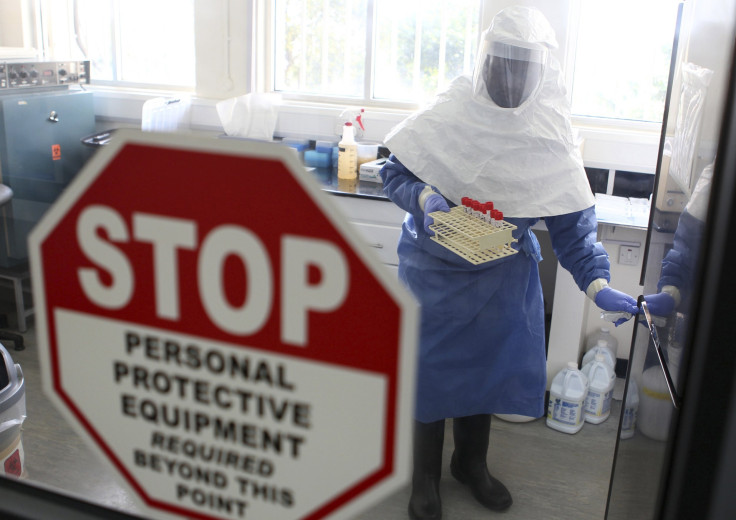Ebola Outbreak: Doctors Without Borders Has 'Reached The Reached The Limit Of What It Can Do' In West Africa

A senior member of Doctors Without Borders (MSF) conceded Monday in a statement that the international medical organization has “reached the limit of what it can do” in response to an Ebola virus outbreak in West Africa.
The outbreak, which began in February, is the largest and most deadly ever in terms of numbers of dead and cases of infection. Between Guinea, Liberia and Sierra Leone, 567 cases and 350 dead have been reported, according to the World Health Organization (WHO). Guinea, where the outbreak was first reported, has been hit the hardest with 258 confirmed cases and 267 deaths. The first recorded outbreak of Ebola occurred in 1976 and killed 280, no outbreak until now has surpassed that count.
MSF says vastly more resources are needed to deal with the outbreak.
Massive deployment needed to fight #Ebola in #westafrica: http://t.co/8haAVXEbOs #MSF
— Michael Goldfarb (@goldfarbMSF) June 23, 2014“The epidemic is out of control,” Dr. Bart Janssens, MSF director of operations says.
“We have reached our limits. Despite the human resources and equipment deployed by MSF in the three affected countries, we are no longer able to send teams to the new outbreak sites,” he continued.
MSF has identified cases in 60 locations in Guinea, Sierra Leone and Liberia. The organization has 300 staff members working in the three countries, but says it is the only organization treating patients with Ebola.
Janssens calls on WHO and neighboring countries to contribute resources to fight the outbreak. Currently the organization says it is providing “technical expertise” to regional governments and supporting their efforts to combat the outbreak. The United Nations Children’s Fund (UNICEF) has sent medical supplies to the region.
"In particular, qualified medical staff need to be made available, training in how to treat Ebola needs to be organized, and awareness-raising activities among the population need to be stepped up,” says Janssens. “Ebola is no longer a public health issue limited to Guinea. It is affecting the whole of West Africa.”
Ebola is an extremely deadly virus with a fatality rate of around 90 percent. There is no known cure, so doctors treat the disease by replacing fluids and fighting secondary infections. Symptoms include devastating internal bleeding, vomiting and muscle pain. Victims usually bleed to death.
Ebola originates within the dense rainforests of sub-Saharan Africa. It is commonly transmitted by contact with infected primates, fruit bats (believed to be the source) and through infected bushmeat. It is transmitted between humans by direct contact with body fluids and tissue or by contact with tainted medical supplies. Because it requires close contact, Ebola is usually isolated hard-to-reach African communities near where it was originally transmitted to a human.
© Copyright IBTimes 2025. All rights reserved.






















